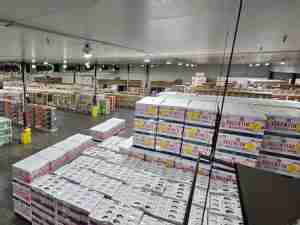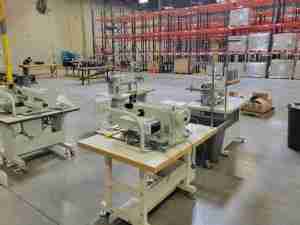Supply Chain Collaboration and Innovation Highlighted at Wharton-IGEL Sustainability Event
posted by AJOT | Mar 06 2017 at 11:04 AM | Logistics
Supply chain collaboration is key to optimizing economic and environmental benefits.
CHEP and leading consumer goods companies unite in their mission to achieve a circular economy.
Atlanta, Georgia - It was a beautiful, sunny February day in Philadelphia, the city of brotherly love. No better place to bring together leading consumer goods companies and academic leaders to discuss the power of collaboration. Sponsored by CHEP, in partnership with The Wharton School’s Initiative for Global Environmental Leadership (IGEL), the event highlighted the importance of supply chain collaboration for sustainability savings and the creation of a circular economy.
“The story told here today is proof that working together can be extremely impactful,” said Kim Rumph, President, CHEP North America. “And if we look across the supply chain in a holistic way, we will discover that collaborating and sharing ideas is making the world a better place.”
At the event, Connecting the Dots: Sustainability Through a Circular Economy, CHEP teamed up with IGEL, a major packaging manufacturer, a multinational food, snack and beverage corporation, a grocery retailer and a leading consumer research company to discuss how supply chain collaboration and innovation are helping to create a circular economy that will move us more towards zero waste and zero emissions.
Event moderator, Gary Survis, Senior Fellow at IGEL and Professor of Corporate Sustainability at Wharton, told attendees, “There is no way to execute on the circular economy as a silo – as a single operator. This event is a demonstration of the power of partnership.”
A recent study by McKinsey & Company, summarized by Mr. Survis, indicates that the consumer goods supply chain is fertile ground for both efficiency and sustainability savings. It shows that up to 90% of sustainability savings can be achieved in the consumer goods supply chain.
As an end-to-end supply chain solutions provider, CHEP is uniquely positioned to help its customers optimize sustainability throughout their value chains. CHEP’s business model is based on shared and reusable assets, as the company moves consumer goods throughout the world on more than 300 million reusable pallets, containers and crates that are used over-and-over again by its manufacturer and retailer customers.
Through CHEP Supply Chain Solutions, the company helps its customers save money, increase efficiency and become more sustainable. In the past 12 months alone, CHEP has helped customers keep 1.4 million trees on the planet and eliminated 2.3 million tonnes of CO2 from the atmosphere (equivalent to taking more than 485,000 passenger vehicles off US roads). CHEP has also removed 1.3 million tonnes of waste from landfills, eliminated 3 million empty truck miles and avoided more than 3,000 tonnes of food from being damaged during transport.
“With $2.1 trillion in consumer goods activity each year, we have the responsibility as business leaders and as parents to leave the world in the best shape possible for our children,” concluded Ms. Rumph.









